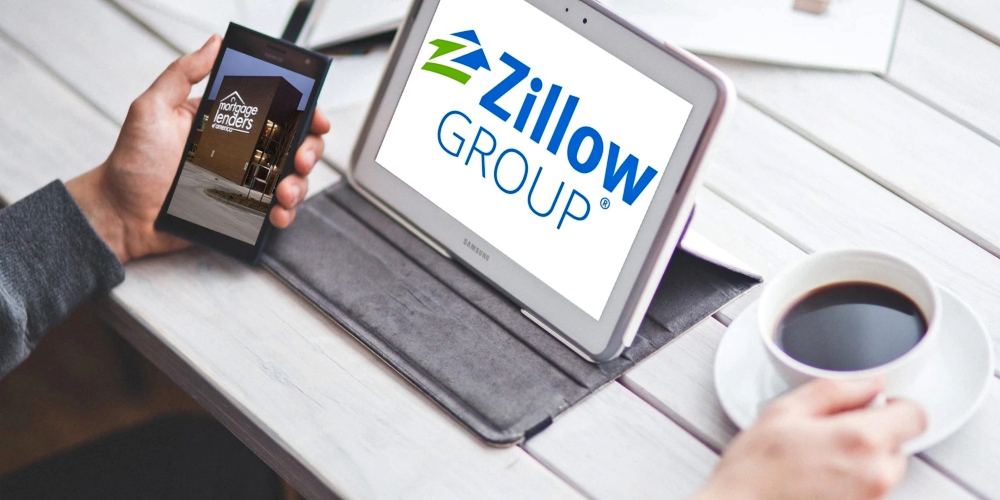In my view, the iBuying model is fatally flawed and may only provide Consumers enhanced benefits in specific market conditions. Furthermore, there appears to be a “revenue at all costs” model to appease investors, providing the inference that a company is growing at the detriment to net profits as most homes are flipped at a net loss.
It is my understanding that iBuyers record revenue as the sale price of the home. Recording the sale price of the house has increased iBuyer revenue exponentially, which increased stock values to all-time highs, however now there is an expectation of continuing revenue growth, which may pressure iBuyers to buy less favorable homes to maintain revenue volume.
Zillow’s recent announcement that they are “pausing” iBuying resulted in a significant drop in stock value and analyst downgrades.
The Fallacy That Combining Brokerage, Mortgage & Escrow Services Enhances Consumer Experiences
My brokerage refers clients to third-party firms we have vetted and have a history of transacting. To gain our trust, third-party companies must exhibit excellent customer service with reasonable rates.
iBuyer agents may provide referrals because they share a cubical with the respective service provider.
Navigating Down Markets
Sales are simple in an appreciating market, and profitability is enhanced (or losses softened). Conversely, transacting in a flat or price-correcting environment may disproportionally impact iBuyers as they are glorified home flippers who might rely on appreciation.
In a study by Mike DelPrete, arguably the preeminent residential real estate analyst, states, “In Q2 2021, home price appreciation accounted for 70 percent of Opendoor’s gross profit margin.”
Federal Investigations Into iBuyer Representations | Per OpenDoor’s SEC Disclosure
“Federal Trade Commission (“FTC”) sent a civil investigative demand (“CID”) to Opendoor seeking documents and information relating primarily to statements in Opendoor’s advertising and website comparing selling homes to Opendoor with selling homes in a traditional manner using an agent and relating to statements that Opendoor’s offers reflect or are based on market prices. Thereafter, Opendoor responded cooperatively to the CID and related follow-up requests from the FTC.”
“On December 23, 2020, the FTC notified the Company that they intend to recommend that the agency pursue an enforcement action against the Company and certain of its officers if we are unable to reach a negotiated settlement acceptable to all parties. The FTC has indicated that they believe certain of Opendoor’s advertising claims relating to the amount of its offers, the repair costs charged to home sellers, and the amount of net proceeds a seller may receive from selling to Opendoor versus selling in the traditional manner were inaccurate and/or inadequately substantiated.”
When previously visiting Opendoor, in what appears to be a four-point font, OpenDoor discloses the following:
“* Beginning on September 30, 2020, for new offers, Opendoor’s service charge will be no more than 5%. Service charge is subject to change, and has historically been as high as 14%.”
OfferPad appears to match the 5% cap, so we may witness a “race to zero” in the iBuying market. If a firm has difficulty achieving net profit when fees have “historically been as high as 14%,” profiting with a 5% cap may prove to be impossible.
Acquiring Via Special Purpose Entities | Reminiscent Of Enron | Complex Financial Reporting The Average Investor May Not Understand
OpenDoor’s SEC 8K States:
“The Company utilizes inventory financing facilities consisting of asset-backed senior credit facilities and asset-backed mezzanine term debt facilities to provide financing for the Company’s real estate inventory purchases and renovation. The credit facilities are secured by the assets and equity of one or more SPEs. Each SPE is a consolidated subsidiary of Opendoor and a separate legal entity. Neither the assets nor credit of any such SPE are generally available to satisfy the debts and other obligations of any other Opendoor entities, except to the extent other Opendoor entities are also a party to the financing arrangements.
These facilities are non-recourse to Opendoor and, with limited exceptions, non-recourse to other Opendoor subsidiaries. These SPEs are variable interest entities and Opendoor is determined to be the primary beneficiary based on its power to direct the activities that most significantly impact the economic outcomes of the entities through its role in designing the entities and managing the real estate inventory purchased and sold by the entities. The Company has potentially significant variable interest in the entities based upon the equity interest the Company holds in the VIEs.”
Understood?
Even OpenDoor is having difficulty with accounting/reporting as they disclosed the following:
“We have identified material weaknesses in our internal control over financial reporting and may identify additional material weaknesses in the future or fail to maintain an effective system of internal control over financial reporting, which may result in material misstatements of our consolidated financial statements or cause us to fail to meet our periodic reporting obligations. We have identified material weaknesses in our internal control over financial reporting. A material weakness is a deficiency, or a combination of deficiencies, in internal control over financial reporting such that there is a reasonable possibility that a material misstatement of our annual or interim financial statements will not be prevented or detected on a timely basis.”
Generally speaking, it is time for all PropTech firms to reevaluate the accuracy of public representations as FTC complaints are filed and class-action law firms are evaluating claims.
The days of misleading consumers while denigrating Realtors are over.
Anthony Phillips is the Co-Founder and President of Luxury Real Estate Advisors and non-profit, Luxury Cares. Luxury Real Estate Advisors is the preeminent provider of sales, leasing, property management, home and investor services to the Las Vegas luxury real estate segment.















































